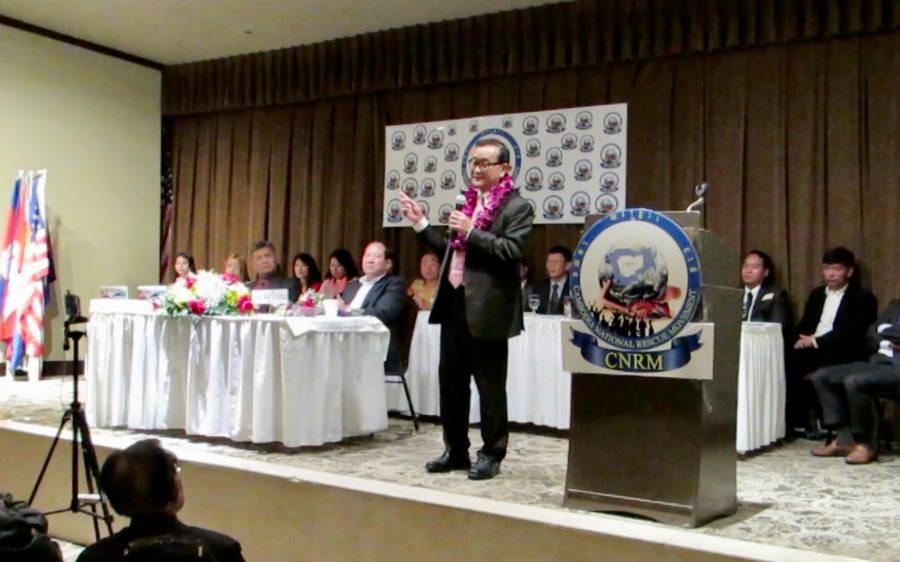One of two CNRP mass trials will have a verdict on March 17 after lawyers in the prolonged legal affair made their concluding statements Thursday, with the prosecution alleging senior opposition leaders and members were directly responsible for partial revocations of international trade privileges.
The case involves eight senior CNRP leaders who are overseas and 13 party members and supporters who are imprisoned in Cambodia. They are charged with incitement, plotting and inciting the military to disobey orders related to their connection to a long list of events including Sam Rainsy’s planned 2019 return, comments about Covid-19 and the formation of an opposition movement overseas called the CNRM.
Deputy prosecutor Seng Heang said there was enough evidence against the defendants to show there was conspiracy to topple the government, pointing to a Rainsy speech calling for workers to hold demonstrations, the group’s preparation of a “secret network,” and formation of the CNRM, which included the call for military to disobey the government.
He added that Eng Chhai Eang, a former CNRP deputy president and defendant in the case, had also said they would create a secret network in the country, blaming this network for disseminating Covid-19 information that was not true and inflammatory.
“This is a sick trick. [They] use rights of freedom of expression but this freedom of expression was hidden behind a trick.”
Heang also blamed the defendants for the partial revocation of the Everything But Arms trade privileges, the groups’ calls for the EU to place sanctions on Cambodia and “the removal of the U.S. Generalized Scheme of Preferences.”
“Cambodia relies on three sectors: Garment factory, real estate and tourism,” he said. “When there is pressure, the economy becomes stuck, people will have no jobs and they will have an uprising.”
The U.S. has not withdrawn the preferential trade access but only announced in November that the U.S. Trade Representative will conduct an assessment of Cambodia’s Generalized System of Preferences eligibility as part of a broader evaluation of the trade scheme, which allows reduced duties to promote growth in poor countries.
Defense lawyer Sam Sokong said events such as Sam Rainsy’s attempted return happened before the defendants were arrested in 2020.
He said the only thing to occur in 2020 was the Covid-19 pandemic, which had led to a discussion about the viral disease among the Cambodian people, and that his clients’ comments about Covid were unrelated to other pieces of evidence used by the prosecution.
Sokong questioned if there was enough evidence to support the charges.
“What evidence shows that they had supported the [CNRM]. Based on the words from Eng Chhai Eang that he created a secret network but there is no evidence. As a lawyer, placing charges need to have evidence,” Sokong said.
Lor Chunthy, another defense lawyer, said the 13 in prison had no connections with the senior leadership overseas and had not incited or called on the military to disobey the government.
Heang, the prosecutor, also asked that the judges convict the defendants and issue arrest warrants for the eight individuals overseas.
The verdict will be read out on March 17.












